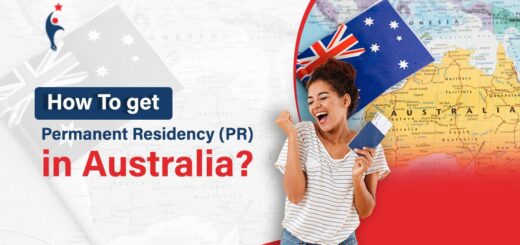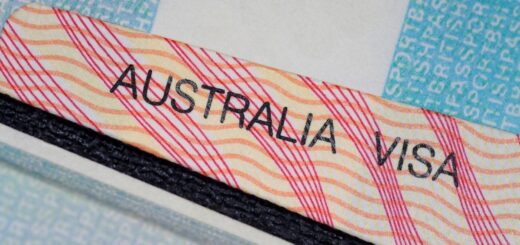Australia Visa Requirements: Your Complete Guide to Visiting, Studying, or Working in Australia

Australia has long been a dream destination for millions of people worldwide. From its stunning beaches and vibrant cities to world-class universities and career opportunities, there is so much to explore. But before you can enjoy any of this, understanding Australia Visa Requirements is essential. Whether you are planning a short visit, hoping to study, seeking employment, or aiming to migrate permanently, knowing which visa applies to your situation, the eligibility rules, and the application process is the first step toward making your plans a reality.
This guide will walk you through all you need to know about Australia Visa Requirements, including who needs a visa, the types available, required documents, fees, processing times, and tips for ensuring a smooth application. By the end, you will have a clear roadmap to start your Australian journey with confidence.
Who Needs an Australia Visa: Requirements for Visitors, Students, and Workers
If you are not an Australian citizen or permanent resident, you will almost certainly need a visa to enter the country. The type of visa depends on the purpose of your visit and how long you intend to stay. Failing to obtain the correct visa can result in denied entry or penalties.
Visiting Australia: Tourist and Business Visa Requirements
For tourists, family visitors, or short-term business travelers, an appropriate visitor visa is mandatory. Options include the Visitor Visa, subclass 600, the Electronic Travel Authority (ETA), subclass 601, or the eVisitor visa, subclass 651. These visas allow travelers to explore Australia, attend business meetings, visit family, or attend conferences. It is important to note that visitor visas generally do not permit employment, and you must leave Australia before the visa expires.
Studying in Australia: Student Visa Requirements and Work Rights
If your goal is to study in Australia, a Student Visa, subclass 500, is required. This visa allows you to enroll in full-time courses at schools, colleges, or universities. To meet the Australia Visa Requirements for students, you must show proof of acceptance into a registered institution, demonstrate financial capacity to cover tuition and living costs, and maintain Overseas Student Health Cover (OSHC). Students can also work up to forty-eight hours per fortnight during term and full-time during scheduled breaks.
Working in Australia: Skilled, Temporary, and Employer-Sponsored Visa Requirements
Australia offers several visa pathways for individuals seeking employment. Skilled migration visas, employer-sponsored visas, and regional visas allow foreign workers to contribute their skills to the Australian workforce. The Skilled Independent visa (subclass 189), Skilled Nominated visa (subclass 190), and Skilled Work Regional visa (subclass 491) cater to applicants with skills in demand. Employer-sponsored visas like the Temporary Skill Shortage visa (subclass 482) and the Employer Nomination Scheme visa (subclass 186) allow employers to sponsor skilled workers for positions that cannot be filled locally.
Joining Family in Australia: Family Visa Requirements
Family visas ensure that spouses, partners, children, and sometimes extended family members can join Australian citizens or permanent residents. These visas may be temporary or permanent, depending on the relationship and visa subclass. Partner visas, parent visas, and child visas all fall under this category, and each has specific eligibility requirements.
Business and Investment Visa Requirements in Australia
Entrepreneurs and investors can obtain business and investment visas to contribute economically while pursuing long-term residency. The Business Innovation and Investment visa (subclass 188) is temporary, while the Business Innovation and Investment Permanent visa (subclass 888) allows visa holders to transition to permanent residency after fulfilling their obligations. These visas require proof of business experience, financial resources, and sometimes a state or territory nomination.
Types of Australia Visa Requirements: Visitor, Student, Work, and Family Visas
Understanding the visa type that applies to you is central to navigating Australia Visa Requirements successfully.
Visitor Visa Requirements (Subclass 600, 601, 651)
The Visitor Visa, subclass 600, is ideal for short-term travel for tourism, family visits, or business. Its validity ranges from three months to a year, depending on circumstances. Work is not allowed on this visa, and multiple entries may be permitted.
The Electronic Travel Authority, subclass 601, allows eligible passport holders to visit Australia multiple times within a year, with each visit lasting up to three months. The eVisitor visa, subclass 651, is a free option for citizens of the European Union and certain other countries, allowing multiple short visits over twelve months.
Student Visa Requirements (Subclass 500)
The Student Visa, subclass 500, is mandatory for anyone studying in Australia for more than three months. Applicants must be accepted into a CRICOS-registered institution, demonstrate financial capacity, maintain health insurance, and meet English language requirements. The ability to work while studying provides financial support and valuable professional experience.
Temporary Graduate Visa Requirements (Subclass 485)
International students who recently completed studies in Australia may apply for the Temporary Graduate Visa, subclass 485. The Graduate Work Stream targets skills aligned with the skilled occupation list, while the Post-Study Work Stream is open to higher education graduates. This visa allows graduates to gain work experience in Australia temporarily, ranging from eighteen months to four years.
Skilled Migration Visa Requirements (Subclass 189, 190, 491)
Skilled migration visas are for individuals with in-demand skills. The Skilled Independent visa, subclass 189, does not require sponsorship, and points are awarded for age, English proficiency, education, and work experience. The Skilled Nominated visa, subclass 190, requires state nomination and obligates the applicant to live in the nominating region for a period. The Skilled Work Regional visa, subclass 491, is provisional and leads to permanent residency after fulfilling residence and income requirements.
Employer-Sponsored Visa Requirements (Subclass 482, 186)
Temporary Skill Shortage visas, subclass 482, are for workers sponsored by Australian employers for roles that cannot be filled locally. The Employer Nomination Scheme visa, subclass 186, is permanent for skilled workers nominated by employers. Applicants must meet age and experience requirements, and the visa includes multiple streams.
Business and Investment Visa Requirements (Subclass 188, 888)
Business and investment visas allow entrepreneurs and investors to contribute economically to Australia. Subclass 188 is temporary, requiring proof of financial capacity and state nomination. Subclass 888 is the permanent visa that allows temporary visa holders to transition after fulfilling obligations.
Family Visa Requirements (Partner, Parent, and Child Visas)
Family visas ensure loved ones can join Australian citizens or permanent residents. Partner visas begin as temporary and transition to permanent residency. Parent visas vary by contributory and non-contributory options, and child visas cover dependent children, including adopted children under eighteen.
Eligibility Criteria for Australia Visa Requirements
Meeting eligibility is key to success. Applicants must have a valid passport with at least six months of remaining validity. Financial proof is required for many visas, showing the ability to cover tuition, living expenses, and travel. Health and character checks, including medical exams and police clearance certificates, are mandatory.
English language proficiency is required for most visa types, verified through IELTS, TOEFL, or PTE. Some visas also require a Genuine Temporary Entrant statement, a personal declaration confirming the purpose of your visit and the intent to leave Australia if applicable.
Documents Needed for Australia Visa Requirements
Common documents include your passport bio data page, passport-sized photographs, completed visa application forms, proof of funds such as bank statements or sponsorship letters, health insurance documents, police clearance certificates, academic or employment records, English language test results, and travel itinerary or accommodation confirmation. Having these documents ready reduces errors and increases the likelihood of approval.
How to Apply for an Australia Visa: Step-by-Step Guide
Start by visiting the Department of Home Affairs website to select the appropriate visa subclass. Create an ImmiAccount to manage your application, complete the online form accurately, upload all required documents, pay the fees, and submit your application. Monitoring your application through your account helps you track progress and ensures you are informed of any additional requirements. Accuracy and honesty throughout this process are essential, as mistakes can lead to delays or refusal.
Australia Visa Requirements: Fees and Processing Times
Visa fees vary. Visitor visas start at AUD 150, student visas around AUD 710, Skilled Independent visas from AUD 4,640, Temporary Skill Shortage visas approximately AUD 1,455, and Partner visas around AUD 8,850. Processing times differ by visa type. Visitor visas generally take 15 to 30 days, student visas four to six weeks, skilled worker visas six to eleven months, partner visas up to 28 months, and business visas six to twelve months or longer.
Conclusion
Understanding Australia Visa Requirements is your gateway to visiting, studying, working, or living in one of the most exciting countries in the world. Planning, preparing documents, selecting the correct visa, and submitting your application well ahead of travel are all critical. Australia welcomes skilled workers, students, family members, and tourists. By carefully following the requirements, you can confidently navigate the process and turn your Australian dream into reality.













